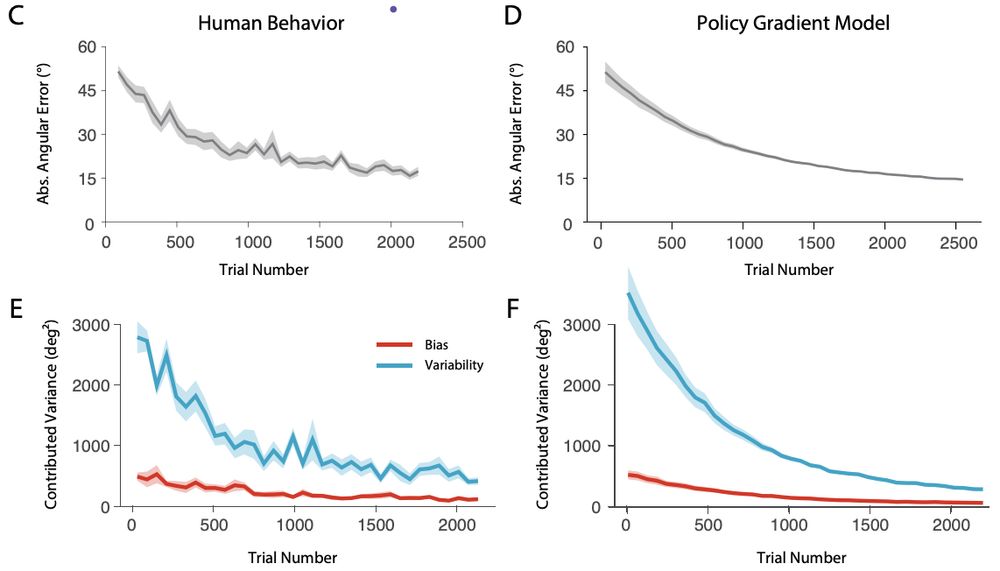
If you’d like to dabble with the models, code for all simulations is available at: github.com/adrianhaith/PolicyGradientSkillLearning
/End.
If you’d like to dabble with the models, code for all simulations is available at: github.com/adrianhaith/PolicyGradientSkillLearning
/End.



In Müller and Sternad’s skittles task (Sternad, Huber, Kuznetzov, 2014):


In Müller and Sternad’s skittles task (Sternad, Huber, Kuznetzov, 2014):


